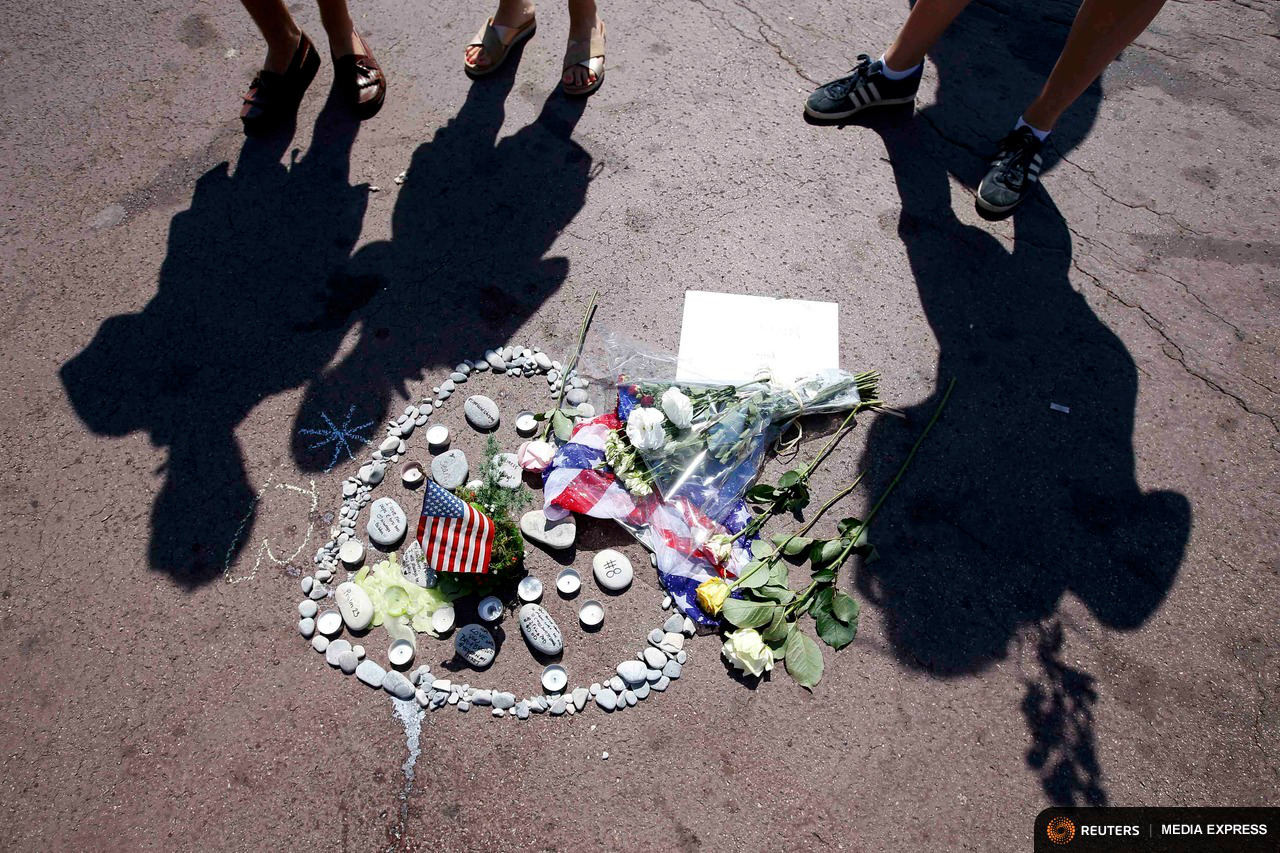“Whoa, thought it was a nightmare/Lo, it’s all so true,They told me, ‘Don't go walkin’ slow/Cause Devil’s on the loose.” – “Run Through The Jungle,” Creedence Clearwater Revival
Are we living in the Biblical “End of Days” prophecy as terrorism, disasters and evil abound around the world?
The astonishing level of terrible violence and disturbing events have started to make many wonder if we are on the verge of a dark new era – or even the beginning of the end.
The signs are ominous: the horrific 84 deaths caused in Nice, France by a deranged man driving a big truck through celebrating crowds; a military coup attempt in Turkey with hundreds killed; black men shot by police during traffic stops and then revenge killings of officers in Dallas and Baton Rouge; millions of Syrian refugees fleeing civil war, with thousands dying in conflict; the Zika virus spreading from Brazil and threatening the summer Olympics; and much more.
Those recent events follow terrorist-style attacks in a gay nightclub in Orlando, Florida in June; suicide bombers at Istanbul’s Airport in Turkey in June and Belgium’s Brussels’ airport in March; two Canadians kidnapped and beheaded in the Philippines; and many more gruesome murders.
So far in July alone there have been over 90 reported terrorist incidents, on average more than five a day.
And many have been broadcast live to the world through social media – including tragic on camera deaths and bloody carnage – magnifying the effect.
It truly seems that the “devil’s on the loose” – but is it the “End of Days?”
What the writings say
The term and similar ones such as “End Time” or “Final Days” or “Eschaton” are used not only in Christian writings but also most other religions, including Hinduism, Buddhism, Islam, Rastafarianism and Norse mythology.
In the Bible, Jesus is quoted as saying to his disciples in Matthew chapter 24 that: “You will hear of wars and rumours of wars; see that you are not alarmed, for this is something that must happen, but the end will not be yet.
“For nation will fight against nation, and kingdom against kingdom. There will be famines and earthquakes in various places. All this is only the beginning...”
Sounds grim. And some fundamentalist Christians claim that: “We in 2016, are living in the end of time for this world as we know it. The Biblical signs are clear for all to see...”
But the Ragnarok – the Norse religion’s “doom of the gods” – is also pretty darn nasty.
Ragnarok is when the sun and moon disappear into cold and darkness, the Earth sinks into the sea, and both humans and gods perish in violent conflict.
And yet, in both these and other religions, the end of days are followed by rebirth – like Christ’s promised second coming – with a new, better world eventually emerging.
Some empirical comfort
For those of us not inclined to follow any religion, a more empirical, scientific analysis also brings some comfort.
The world has been beset by terrorism, war, plagues, earthquakes, floods and other catastrophes since its inception.
And while the current string of horrific incidents both human and natural is deeply disturbing, consider 20th century history for comparison.
The First World War began with an act of terrorism and ended with over 16 million dead, but it was merely a precursor to the Second World War, with between 50 and 85 million killed.
That century also saw the Chinese civil war – 8 million killed; the Russian revolution and war – 5-9 million killed; the Korean War – 1.2 million dead; the Vietnam War – 1.3 million killed; and dozens of other bloody conflicts that killed many millions more.
The 20th century also marked the introduction of the atomic bomb, chemical and germ warfare.
And in 1918, the influenza pandemic killed between 50 and 100 million people – three to five per cent of the entire world’s population – one of deadliest natural disasters in human history.
The 20th century also saw the rise of other deadly illnesses: HIV/AIDS, Ebola, avian flu and SARS to name a few.
So are we really at the “End of Days” when one applies some rational perspective to these apocalyptic events that humanity has survived? No, certainly not.
No matter how horrible the loss of life, how cruel the terrorist attacks, how scary the illnesses or how stunning the catastrophes – it’s worth remembering that the world has both seen and survived far worse. ![]()
















Tyee Commenting Guidelines
Comments that violate guidelines risk being deleted, and violations may result in a temporary or permanent user ban. Maintain the spirit of good conversation to stay in the discussion.
*Please note The Tyee is not a forum for spreading misinformation about COVID-19, denying its existence or minimizing its risk to public health.
Do:
Do not: